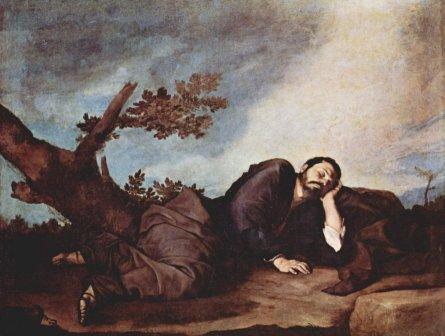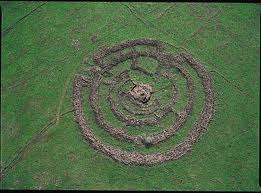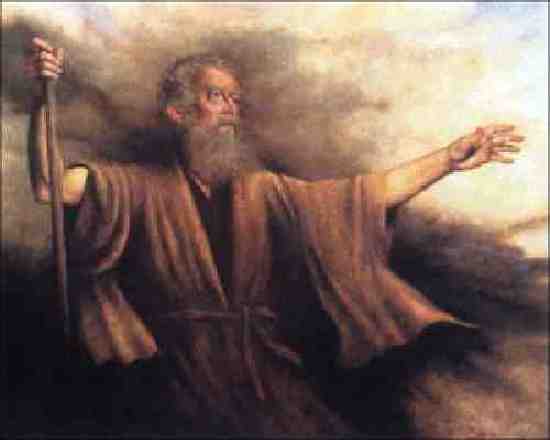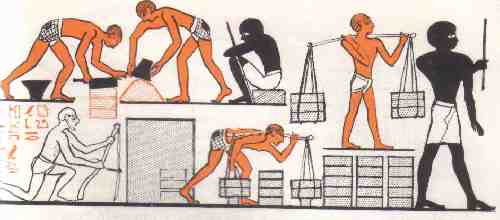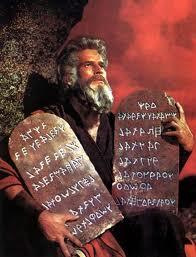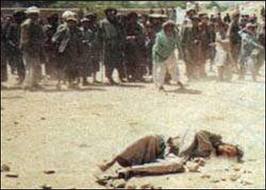|
Page 7 of 10 pages |
|
|
Tithe Terrorism .. .. .. Simplified and Condemned |
|
|
"Tithe Terrorism" is the method used by many churches and many ministers to extort from church members the "uttermost farthing" (all that can be obtained of their money) for church purposes (but usually specifically for minister's salaries and their superiors' expenses) based on archaic Jewish customs no longer binding on Christians according to the teachings of Jesus and Paul. Everything besides these salaries is supposed to be financed by "free-will offerings" but in practical terms in a practical world, nothing much else will occur unless the minister or evangelist is paid a living wage and assured of retirement "benefits". In these churches the tithe is thus the "engine" that makes the church run. "Tithe Terrorism" depends on the members knowing their Bibles, assuming the Bibles to be the irrevocable, accurate, and inerrant "Word of God", and its stories the pattern that they must follow if indeed they are to be "saved" and spend eternity in heaven (whether or not there is a literal "hell") "Tithe" began with Abraham, but achieved a number (10%) that can be depended on, in the Bible story of Jacob and his dream while fleeing his home and searching for a wife and career. Genesis 28:10 "And Jacob went out from Beer-sheba, and went toward Haran. 11 And he lighted upon a certain place, and tarried there all night, because the sun was set; and he took of the stones of that place, and put them for his pillows, and laid down in that place to sleep."
Genesis 28:12 "And he dreamed, and behold a ladder set up on the earth, and the top of it reached to heaven: and behold the angels of God ascending and descending on it."
Genesis 28:13 "And, behold, the Lord stood above it, and said, I am the Lord God of Abraham thy father, and the God of Isaac: the land whereon thou liest, to thee will I give it, and to thy seed; 14 And thy seed shall be of the dust of the earth, and thou shalt spread abroad to the west, and to the east, and to the north, and to the south; and in thee and in thy seed shall all the families of the earth be blessed. 15 And, behold, I am with thee, and will keep thee in all places whither thou goest, and will bring thee again into this land; for I will not leave thee, until I have done that which I have spoken to thee of." Note that however carefully you read what the Lord said to Jacob in the dream or after the dream (its not certain which occurred), he (the Lord) DID NOT SAY "Give me 10% of everything you own now (which was practically nothing) and later (which amounted to a lot of sheep and goats and very little money) AND THEN I will bless you with (this and that)." He (the Lord) made an unconditional promise to Jacob, as he also had to Abraham. "I am the Lord. I'm going to do what I am going to do." Genesis 28:16 And Jacob awakened out of his sleep, and he said, Surely the Lord is in this place; and I knew it not. 17 And he was afraid, and said, How dreadful is this place! this is none other but the house of God, and this is the gate of heaven."
Once Israel gained control of the Golon heights north and east of the Sea of Galilee they found this ancient rock structure which most feel resembles Stonehenge in Britain. Some sort of "Gateway to Heaven" in the Astrological sense, as Jacob said in Genesis 28:17 This is perhaps where Jacob spent the night with his stone pillows! Genesis 28:18 "And Jacob rose up early in the morning, and took the stone that he had put for his pillows, and set it up as a pillar, and poured oil upon the top of it. 19 And he called the name of that place Beth-el: but the name of that city was called Luz at the first." Genesis 28:20 " And Jacob vowed a vow, saying, If God will be with me, and will keep in this way that I go, and will give me bread to eat, and raiment to put on, 21 So that I come again to my father's house in peace; then shall the Lord be my God; and this stone, which I have set up for a pillar, shall be God's house: and of all that thou shalt give me I will surely give the tenth unto thee." A Vow that Wasn't Kept? The most suspicious and critical readers of this story I have quoted above, which will include a lot of modern Biblical critics, will check the rest of the story of Jacob's life as recorded in the Bible, to see if he indeed keep his promise to pay a 10% tithe to some representative of the "most high God" on earth, as Abraham is recorded as doing to Melchizidek , king of Salem, and "priest of the most high God." They, and you too, if you choose to do this, will discover that there is no record that Jacob paid this 10% tithe, even once. Or a Contract that God, not Jacob, didn't Keep? Genesis 28:13 "And, behold, the Lord stood above it, and said, I am the Lord God of Abraham thy father, and the God of Isaac: the land whereon thou liest, to thee will I give it,--" The Biblical facts of this matter are: that when Jacob returned with his large family to perhaps the Golan heights, where he may have made this promise, he had to hurry through because he heard that Esau was on his way with an army to meet him, and supposedly kill him. He never himself owned even a square foot of Canaan, but was a wandering nomad. He settled in Egypt as an old man, but Egypt was NOT the land God promised him. " and to thy seed; ---" The Biblical facts and historical facts here are that, Yes, Jacob's descendents did finally own Galilee, Samaria, and Judah hundreds of years after Jacob's death, but of course Judah himself had no way of knowing that this would be true in his lifetime. Hebrews 11:9 "By faith he (Abraham) sojourned in the land of promise, as in a strange country, dwelling in tabernacles (tents) with Isaac and Jacob, the heirs with him of the same promise:--- 13 These all died in faith, not having received the promises, but having seen them afar off, and were persuaded of them, and embraced them, and confessed that they were strangers and pilgrims on the earth." Genesis 28:14 "And thy seed shall be as the dust of the earth,--" Unlike Abraham, who had to wait until he was 100 years old to have the heir that God approved of, and Isaac who had twins at 60 years old, Jacob did have 12 sons and 1 daughter. But he only was this prolific because he had two wives and two concubines, and 13 children do not exactly equal "as the dust of the earth." "--and thou shalt spread abroad to the west, and to the east, and to the north, and to the south;--" Yes, but as captives, slaves, and exiles --- the "Diaspora Jews" was not exactly the promise that Jacob may have envisioned! "-- and in thee and in thy seed shall all the families of the earth be blessed." Large segments of the world's population have hated and reviled the Jews virtually from the day Jacob had this dream, starting, of course, with Jacob's brother Esau, reaching perhaps a peak during the Jewish holocaust of the early 1900s and WWII, and continuing still as the Arab and Muslim nations deny Israel the "right to exist". Genesis 28:15 "And, behold, I am with thee, and will keep thee in all places whither thou goest, and will bring thee again into this land; for I will not leave thee, until I have done that which I have spoken to thee of." Having received little or no evidence that this was indeed the case, and perhaps waiting for some evidence it was, perhaps Jacob was waiting for some of this to happen before he started paying that 10% tithe. It was, after all, a conditional vow on his part. Malachi Firmed up God's Part of this "Contract", and made Tithing Mandatory
Malachi 3:10 "Bring ye all the tithes into the storehouse, that there may be meat in mine house, and prove me now herewith, saith the Lord of hosts, if I will not open you the windows of heaven, and pour you out a blessing, that there shall not be room enough to receive it. Malachi 3:11 And I will rebuke the devourer for your sakes, and he shall not destroy the fruits of your ground; neither shall your vine cast her fruit before the time in the field, saith the Lord of hosts." These are the PROMISES if the people comply -- but what are the consequences if they don't pay tithe? They will be cursed with a curse -- Malachi 3: 9. And accused of being robbers- Malachi 3:8 It appears that tithing was not made mandatory until after the time of "Moses" because there was no opportunity for the "Sons of Jacob" to pay tithe while they were slaves in Egypt. Slaves Making Bricks
Exodus 1:8 "Now there arose up a new king over Egypt, which knew not Joseph. --11 Therefore they set over them (Jacob's descendents, the potential tithe-payers) taskmasters to afflict them with their burdens. And they built for Pharaoh treasure cities, Pithom and Ramses. -- 13 And the Egyptians made the children of Israel to serve with rigour: -- 14 And they made their lives bitter with hard bondage, in morter, and in brick, and in all manner of service in the field: all their service, wherein they made them serve, was with rigour." And evidently without pay, for the Israelites are said to have borrowed gold and jewels from the Egyptians just before the passover on which they left Egypt. No pay, no tithe! "Moses" the Law Giver
We are led to believe by Jewish traditions that "Moses", and he alone, composed the first five books of the Bible. Genesis, Exodus, Leviticus, Numbers, and Deuteronomy. Most modern scholars are now quite certain that these books were written by an anonymous group of writers they have identified by the letters "J" for Jahwist, "E" for Elohist, "P" for Priestly, and "R" for Redactor. (amongst others). Whether "Moses" wrote all these books makes little difference to me on this page, since nobody really knows who "Moses" was, where he was born, or even very much about his life. He most likely is a compilation of several or many people, used to promote various agendas. Leviticus Chapter 27 Neither tithes or vows are mentioned in Exodus, but Leviticus devotes an entire chapter, chapter 27, to something called "singular" vows. Here's what the Pilgrim Study Bible has to say about "singular" vows. Page 179 relating to Lev. 27:3 "A SINGULAR VOW. The vow was a voluntary undertaking on the part of any Israelite, to give himself and his possessions to God. As all the people who made vows could not serve in the Tabernacle, each of those who could not do so gave large gifts to God instead. The size of the gift was decided by the priest, according to the wealth or poverty of the man who offered the vow. We have no such order in the New Testament, but so great is the love of Christ that, when we are born again, we owe our whole lives and all our possessions to God -- not just a part - to be used for Him (See Rom. 12:1; 1 Cor. 6:19,20)
4 of the last 5 verses of Leviticus 27 switch from vows to tithes (evidently a vow of 10%) as follows: Lev. 27:30 "And all the tithe of the land, whether of the seed of the land, or of the fruit of the tree, is the Lord's: it is holy unto the Lord, 31 And if a man will at all redeem ought of his tithes, he shall add thereto the fifth part thereof. 32 And concerning the tithe of the herd, or of the flock, even of whatsoever passeth under the rod, the tenth shall be holy unto the Lord. 33 He shall not search whether it be good or bad, neither shall he change it: and if he change it at all, then both it and the change thereof shall be holy; it shall not be redeemed." "Moses" on Enforcement If one were to ask the "Moses" of the 5 "Books of Moses" what should be done with a person who refused to pay tithe, or who broke a vow, there's no reason to believe that the punishment would be any other than his usual punishment for such a rebellious attitude --- the punishment would be death, preferably immediately, and most likely by stoning! Number 15:32 "And while the children of Israel were in the wilderness, they found a man that gathered sticks upon the sabbath day. 33 And they that found him gathering sticks brought him unto Moses and Aaron, and unto all the congregation. 34 And they put him in ward, because it was not declared what should be done to him. 35 And the Lord said unto Moses, The man shall be surely put to death: all the congregation shall stone him with stones without the camp." 36 "And all the congregation brought him without the camp, and stoned him with stones, and he died; as the Lord commanded Moses." Shaky Ground You can read the books of Moses through, however, looking for examples of other people who were stoned to death for offenses other than this one man gathering sticks on the Sabbath day and fail to find any. But, surprisingly, one can indeed find a major example of a class of people who were exempt from keeping their vows. Women who had husbands who disagreed with that vow. And daughters whose fathers also would not agree to the daughter's vow. Numbers 30:2 "If a man vow a vow unto the Lord, or swear an oath to bind his soul with a bond; he shall not break his word, he shall do according to all that proceedeth out of his mouth." 3 If a woman also vow a vow unto the Lord, and bind herself by a bond, being in her father's house in her youth; 4 And her father hear her vow, and her bond wherewith she hath bound her soul, and her father shall hold his peace (not say anything) at her: then all her vows shall stand, and every bond wherewith she hath bound her soul shall stand.' 5 But if her father disallow her in the day that he heareth; not any of her vows, or of her bonds wherewith she hath bound her soul, shall stand: and the Lord shall forgive her, because her father disallowed her.' 6 "And if she had at all an husband, when she had vowed, or uttered ought out of her lips, wherewith she bound her soul; 7 And her hsband heard it, and held his peace at her in the day that he heard it: then her vows shall stand, and her bonds wherewith she bound her soul shall stand. 8 But if her husband disallowed her on the day that he heard it; then he shall make her vow that she vowed, and that which she uttered with her lips, wherewith she bound her soul, of none effect: and the Lord shall foregive her." 9 But every vow of a widow, and of her that is divorced, wherewith they have pound their souls, shall stand against her." A critical reader of these "Laws of Moses" which modern scholars are quite certain were not written by "Moses" but others ("J", "E", "P", "R", and Etc) will first see them as very harsh and arbitrary, and then suspect that they were rarely if ever enforced with the suggested penalty for disobedience. Then comes the third judgment on all this, that Jehovah had nothing to do with their composition. This was exactly what a later reader and critic of these laws, Jesus of Nazareth had to say about them.
Matthew 15:9 "But in vain do they worship me (God), teaching for doctrines the commandments of Men." Later this same "critic" of "Moses Laws" would march into the temple precinct and show his disregard for the tithes and the offerings, and the methods used by the Jewish authorities of his day to raise money. Matthew 21:12 "And Jesus went into the temple of God, and cast out all them that sold and bought in the temple, and overthrew the tables of the moneychangers, and the seats of them that sold doves. 13 And he said unto them, It is written, My house shall be called the house of prayer: but you have made it a den of thieves."
Several concerns are operative in most Christian Churches to cause those who would otherwise be tempted to use these texts and really put more pressure on people to pay tithe and give more liberally -- 1) These ministers are not really certain that these texts are valid in a New Testament setting. and 2) They're not sure Jesus approves of such methods of raising money and meeting their budgets, and 3) They are afraid that they will empty the seats occupied by the non-tithe- payers (usually 87-93% of their congregations) and be left with only the 7-13% who are tithe-payers to preach to!
|
|
NEXT: Dave's Story, Practical Financial Morality Page 9: Jesus' Non-Tithe-Paying Disciples Page 10: From 10% to Everything One Owns!
|
